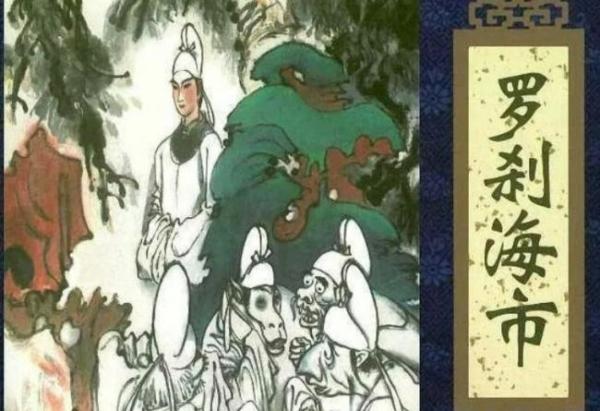Chinese singer-songwriter Daolang’s new song “Raksha Haishi” has suddenly became a global sensation, after he had faded from the public consciousness in recent years. China observers have pointed out that the fast-growing popularity of the song is due to the social critique coded into the song’s lyrics, which resonates with many people in China. The commentators believe that the Chinese Communist Party’s (CCP’s) not banning it—for now, at least—is a ploy to shift people’s focus from its current scandals.
Combining Traditional Chinese Stories, Folk Tunes, and Pop Music
The song Raksha Haishi is one of the 11 songs in Daolang’s new album “Folk Songs Liaozhai“ released on July 19. He wrote all of the songs—both the music and the lyrics. The song titles and lyrics on the album are inspired by Qing Dynasty Chinese novelist Pu Songling’s representative works ”Strange Tales from Liaozhai Studio” (commonly known as “Liaozhai”). Pu is one of the most famous writers in Chinese history.
Ma is considered a monster by the residents in Raksha, so he puts on an ugly mask to fit in, and achieves success. But soon he gets tired of pretending and goes to Haishi, the Sea God’s kingdom at the bottom of the ocean, where real beauty and talents are recognized and respected. He finds success and happiness as who he really is, and marries the Sea God’s daughter, who bears him two children. However, his happiness only lasts for a couple of years until he has to return home, never again to return to Haishi. The word “Haishi” also means “mirage” in Chinese.
Daolang [which means “Sword Man” in Chinese] has kept the main plot and the characters in the original story, while adding new creatures to it, using allusions and analogies in half classical and half vernacular language to satirize and criticize present issues in Chinese society, and to question the human condition. It is resonating with many fans around the globe, and has attracted a lot of attention from the public.
Social Critique
The song has not only performed amazingly well on online music streaming platforms, but has also become a hot topic on social media, with a huge number of posts to discuss, interpret, and comment on its social references and significance.However, his talent and success were ridiculed and suppressed by “authoritative figures” in the Chinese music industry, such as the “big four” alluded to in his song. He was even publicly named and criticized at the 2007 symposium on “Resisting the Vulgarity of Online Songs” held by the state-backed Chinese music industry. He had virtually disappeared from the mainstream music scene in China for almost 20 years.

Distraction From CCP’s Recent Scandals
Mr. Li, a mainland intellectual who declined to give his full name for safety reasons, told The Epoch Times on July 30 that this “Raksha Haishi” phenomenon is a concentrated outbreak of the Chinese people’s deep dissatisfaction with reality, “because there have been too many things that have been reversed in terms of right and wrong in recent years and that have accumulated over the past few decades—especially the regime’s draconian three-year COVID-19 restrictions. Many disasters continue to happen, and the government tries to cover up as much as possible, while accusing the common people of spreading rumors. Everything is for maintaining the regime’s stability. Against this background, many people can see that the song is actually a kind of satire [of Chinese society] on a larger scale.”Wu Zuolai, a Chinese writer based in the United States, said that whether this song will be banned by the regime depends on whether someone will bring it to the political level. “For example, those who were indirectly criticized by him in the song, if they complain to the related governmental departments, or if it turns into a force of opposition against the government, the authorities may ban it,” Mr. Wu said.
Chinese state media CCTV and “Beijing News” have, unusually, praised Daolang and “Raksha Haishi” recently.
Wu said that the CCP’s propaganda department was happy to see the popularity of the song, “because Foreign Minister Qin Gang was removed recently and is missing, and rumors of corruption in China’s Rocket Force leadership are rampant. The authorities are trying to shift the public focus from these scandals, and the popularity of “Raksha Haishi“ has saved them. The Propaganda Department of the CCP has now even turned a blind eye to the satirical lyrics, and decided not to ban it. They might even encourage more clicks of the song for the sensation, in order to continue to replace the focus on the CCP’s scandals.”






